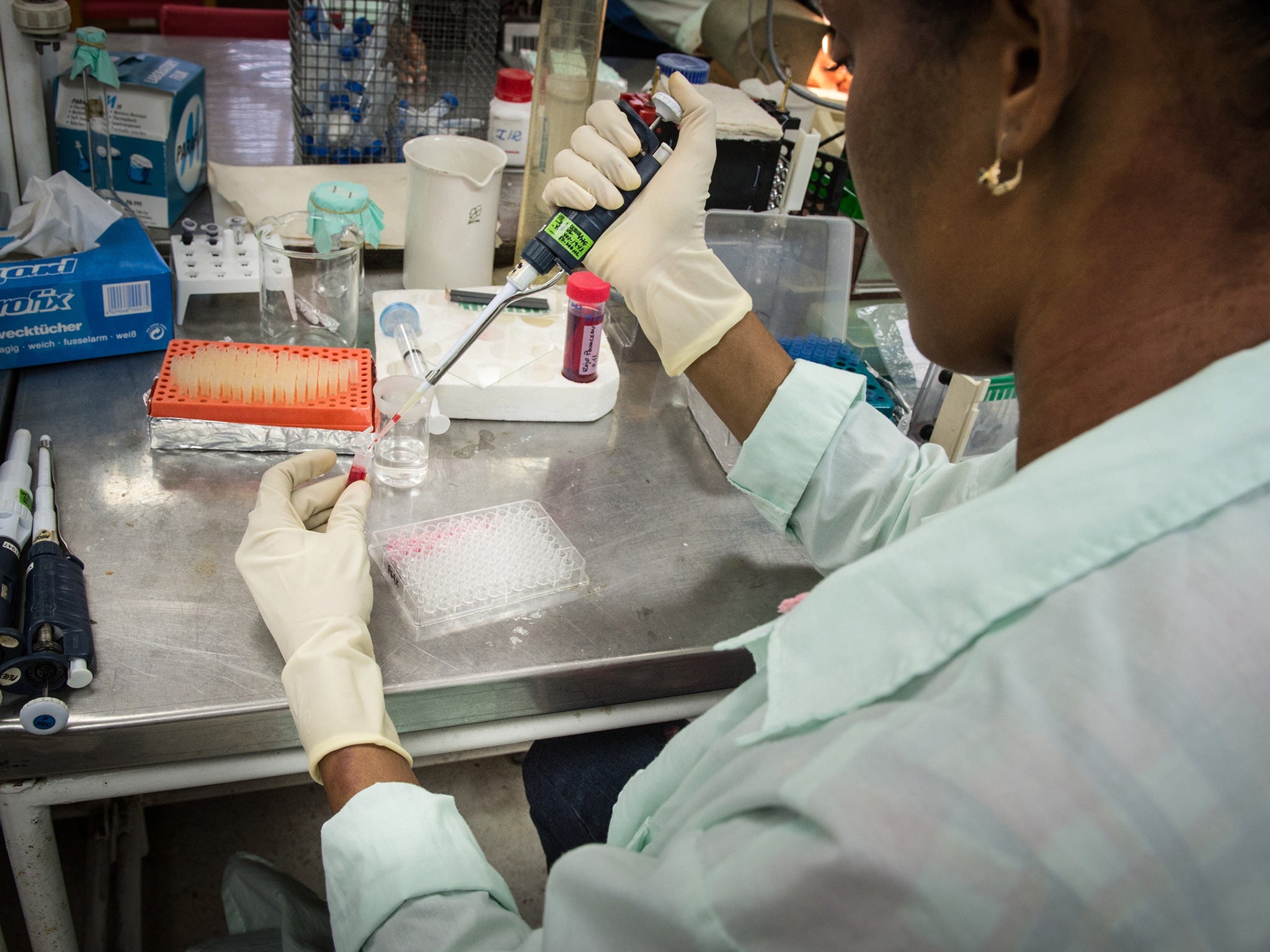Scientists discover way of targeting 'lynchpin' molecule to prevent the spread of cancer
Experiments have shown it may be possible to prevent 'metastatic' spread

Scientists have found a way of preventing the spread of cancer from the site of the original tumour by targeting a “lynchpin” molecule that is critical to the movement of cancer cells around the body.
Experiments on laboratory mice with the human form of prostate cancer have shown that it may be possible to prevent “metastatic” spread in human patients by targeting the same protein molecule, known as DNA-PKcs.
Metastasis, the transport of cancer cells around the body to vital organs such as liver or brain, usually leads to death in cancer patients, so anything that slows down or prevents the process could extend life significantly.
The DNA-PKcs appears to play a crucial role in metastasis because it acts as a repair enzyme or “kinase” that fixes mutated DNA stands found in cancer cells. Without the protein, these defective cells would normally self-destruct.
Dr Karen Knudsen, director of the Sidney Kimmel Cancer Centre at Thomas Jefferson University, said: "Finding a way to halt or prevent cancer metastasis has proven elusive. We discovered that a molecule called DNA-PKcs could give us a means of knocking out major pathways that control metastasis before it begins."
In a study published in the journal Cancer Cell, the scientists found that blocking DNA-PKcs in mice with prostate cancer prevent the tumour cells from spreading, and the metastatic tumours growing in animals with metastatic disease showed signs of being less aggressive
“These results strongly suggest that DNA-PKcs is a master regulator of the pathways and signals that lead to the development of metastases in prostate cancer, and that high levels of DNA-PKcs could predict which early stage tumours may go on to metastasise," said Dr Knudsen.
The researchers said that clinical trials on the drug CC-115, an inhibitor of DNA-PKcs made by Cellgene, are scheduled to begin soon for patients showing signs of advanced cancer.
"Although the pathway to drug approval can take many years, this new trial will provide some insight into the effect of DNA-PKcs inhibitors as anti-tumour agents,” Dr Knudsen said.
“In parallel, using this [protein] kinase as a marker of severe disease may also help identify patients whose tumours will develop into aggressive metastatic disease, so that we can treat them with more aggressive therapy earlier.
"Given the role of DNA-PKcs in DNA repair as well as control of tumour metastasis, there will be challenges in clinical implementation - but this discovery unveils new opportunities for preventing or treating advanced disease,” she added.
Join our commenting forum
Join thought-provoking conversations, follow other Independent readers and see their replies
Comments
Bookmark popover
Removed from bookmarks